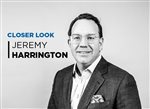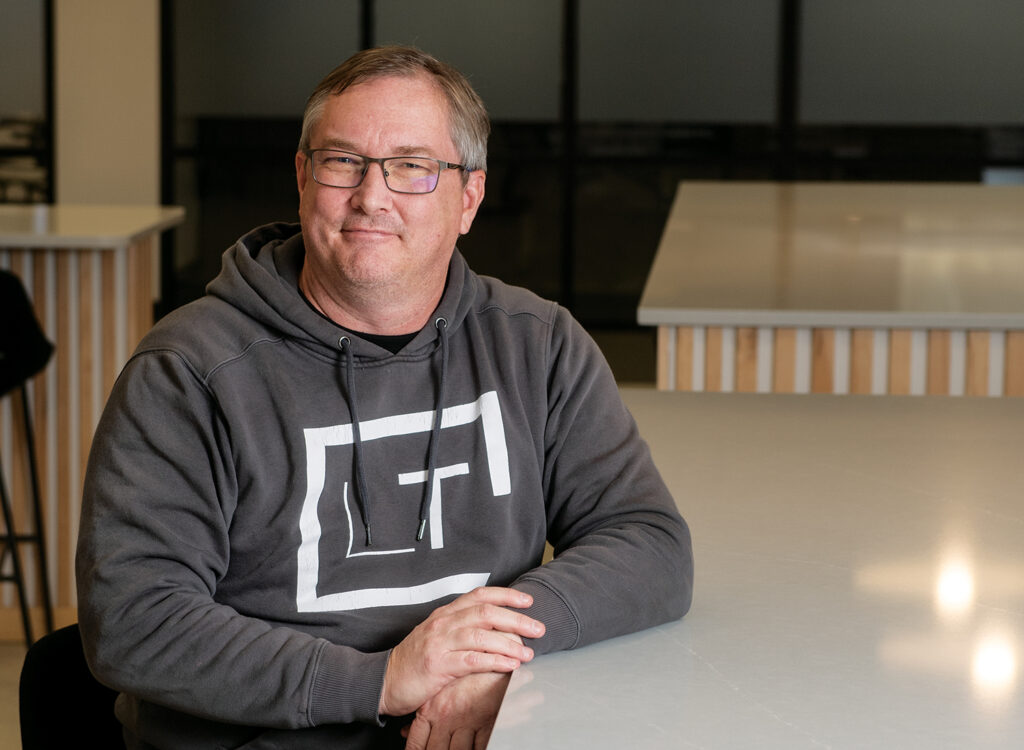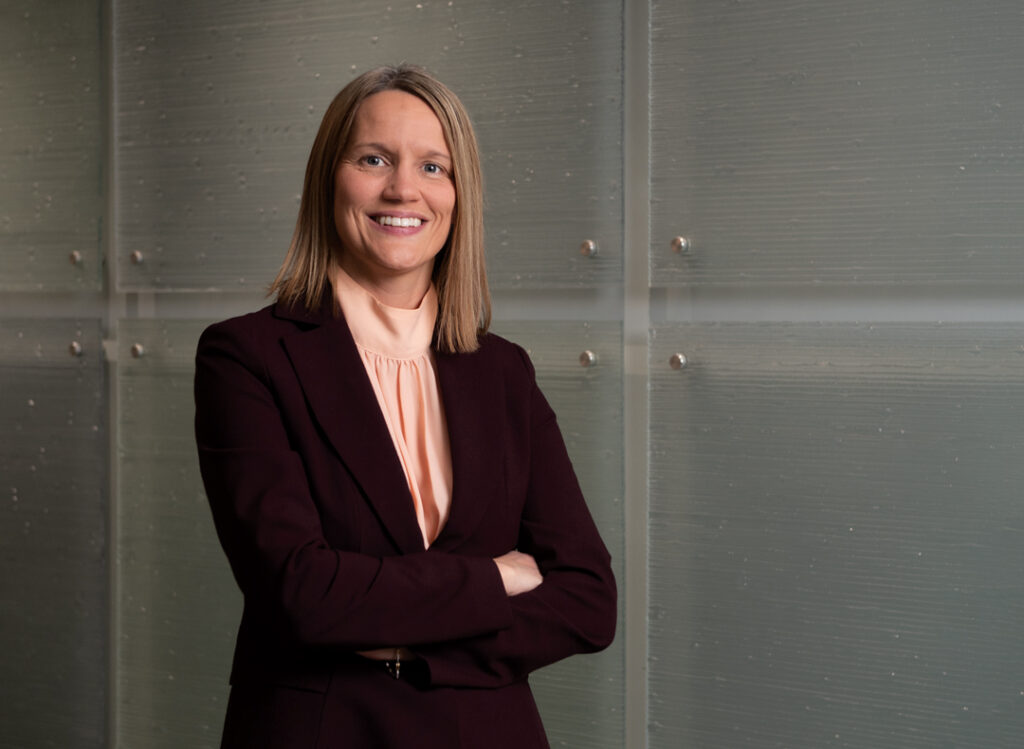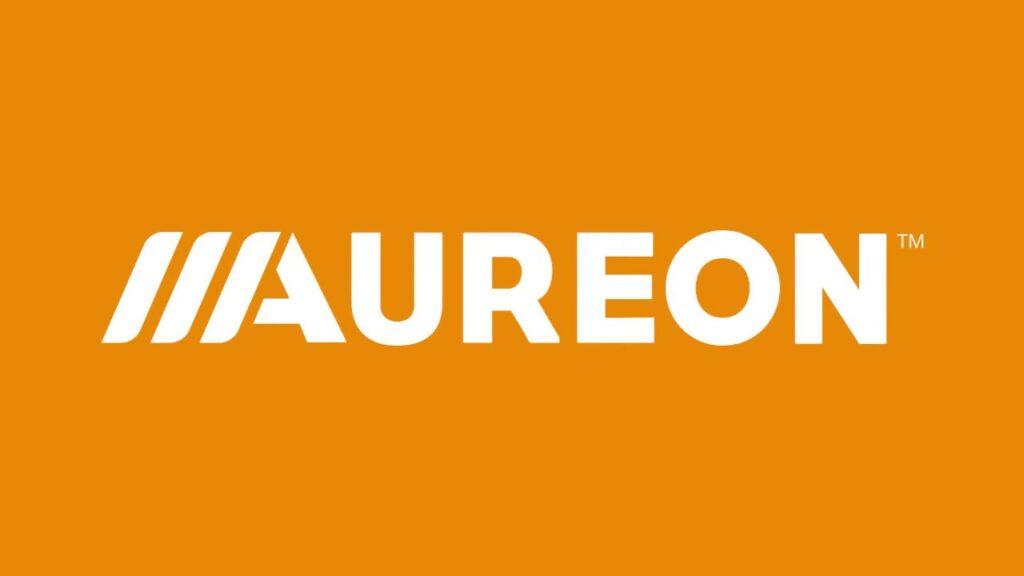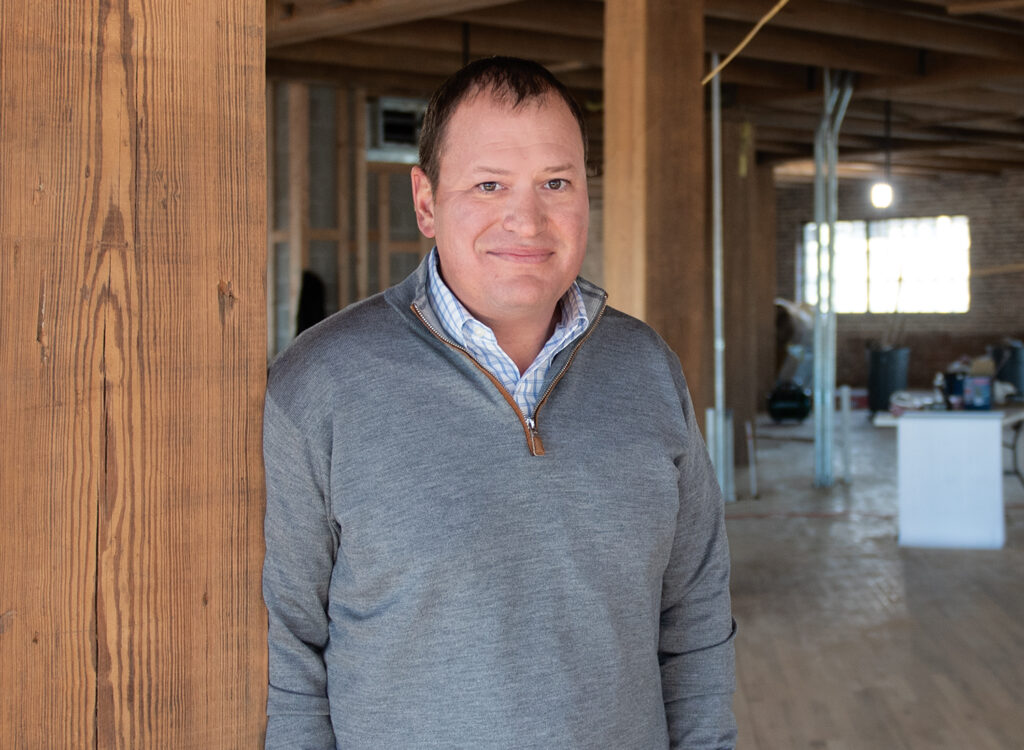A Closer Look: Jeremy Harrington
Vice President/General Manager, Shift Interactive

KATE HAYDEN Feb 13, 2020 | 10:22 pm
5 min read time
1,266 wordsBusiness Record Insider, Innovation and Entrepreneurship
Jeremy Harrington enters Shift Interactive just as the company enters a new phase: focusing entirely on custom software for clients across industries such as agriculture, health care, insurance and finance. Shift, which has a team of 25 working on product development, recently joined three other technology and marketing companies — Performance Marketing, Vector Haus and Blue Traffic — under the umbrella brand Anthologic, which debuted early November.
“The momentum that Shift has, and the success they’ve had really moving to this custom software approach, is such a big part of what drew me in this time,” Harrington said. “I see myself as a supporter and accelerator to enable what they’ve already been doing. … I’m eager for that to pop up and be visible to folks here.”
Harrington joined Shift after two years at Pillar Technology. He was previously an equity partner in VolunteerLocal and has been a local mentor for startups going through the Iowa AgriTech Accelerator and the Global Insurance Accelerator, as well as a mentor at the Waukee Community School District’s Waukee Aspiring Professional Experience (APEX) high school facility.
What was your background before coming to Shift?
I’ve been in software for about 20 years. I started my career at Engineering Animation in Ames in 2000, really focused on design. My background has always been user experience and software design. I found out early on that nothing gets built without developers, no matter how great the design is. I immediately built friendships and lasting relationships with developers and the folks behind the scenes over time. Throughout my career, it’s sort of been a progression [of] building design teams. I’ve done that a number of times. … Product design for software has evolved tremendously in the past 20 years, and become more and more center stage.
Previous to Shift I was building a design practice at Pillar here in town, helping to build one of the largest UX teams in Iowa, and over the two years that I was there I’m super proud of and really learned a tremendous amount about the daily operations of business.
How did a degree in criminology lead to user design?
I actually went to school on a music scholarship. I was under the impression that that’s where my career would go, and it didn’t go that way. I ended up changing degrees in my junior year, and criminology was an interest, and the credits were close. My father was a sign painter and an artist in Knoxville, and I grew up around that. The entire time I was in school I was doing design, working in a lab, teaching students how to use design software and how to build websites and all those things.
By the time I got my degree, I already had a job here in Des Moines as a designer already set up. The value of that criminology degree came through later, all the research and social science side I use every day in the way that I interview and talk to people. The empathy-building that we have to do as designers to really understand the why and what of what we’re building. I didn’t realize it at the time, but all of those skills were coming through. … It came to be pretty valuable. As I’ve built design teams over all these years … it’s very rare that it’s an arts degree. Journalism majors are the No. 1 folks I’ve hired in design. There’s a good curiosity and empathy, and ability to tell stories and build narrative that are all central to building great experiences.
What interested you in this role?
It was a combination of the team, which is an outstanding team. There’s a momentum that Shift has right now. They’ve evolved into custom software and really pushing on the kinds of innovative work that move business forward — kind of getting out of websites and mobile as the front-runner, but really much more in a custom software and innovation space.
The role itself enables me to have an accountability and a freedom, and both at the same time, to really help accelerate what they’re doing.
What’s the best piece of advice or feedback you’ve received since starting?
I think the biggest is that I’ve just really been allowed to have a voice right out of the gate. Certainly I’m listening and trying to understand, but I’d say the big thing has just been the desire to engage right out of the gate … in really great open dialogue. Everybody is in a growth mindset position right now in “how do we do all of this together, and how do we do it quickly?”
It’s the first time, I think, in a transition like this where I can walk in a room and have a voice right out of the gate, which is big.
How is Shift changing as Anthologic comes onboard?
I think of it as pieces of a puzzle that all come together. In the past, building custom software and really focusing on innovation solves a great need. What we would see in a lot of other cases is difficulty when it comes time to launch that software — difficulty getting users into those systems, and either being made aware of it, or the accessibility of it. That’s where Performance Marketing and that side of the business is — 20 years of launching brands and doing that work ties in so well. They also bring a stable of global brands to bear that will allow us at Shift to go in and have really interesting conversations.
We [at Shift] certainly don’t want to do technology for technology’s sake. We are really evolved to understanding the why and the business’s needs, and then applying back what we know. … It’s much more about listening and understanding that need, and a move to agile teams.
One of the things that really excited me about Shift [is] the track record they have being successful with startups, which is a difficult thing to do as a consultancy — to be able to come in and manage cost, manage scope for founders, especially nontechnical founders.
What’s a goal you have for your first year?
Our biggest one is, how do we have meaningful, sustainable growth? There are ways we could go and just blow up, double the size [of the company] and do all that, and I think we would wreck the culture and all of the things that have helped us to get here. I think we’re really focused on what those marquee projects are that we can be part of — prioritizing our attention toward impactful, innovative things. … The other pieces will follow the growth that’s needed, whether that’s in team size or roles changing, or any of those things that have helped to get us here. My main focus right now is ensuring that we have what we need to deliver on existing things.
What have you been reading/watching/listening to lately?
Health and fitness have become a lot more important for me, so I’ve been listening to Peter Attia. He is a Hopkins-educated surgeon and has this really diverse background, but his focus is on longevity, but not for vanity’s sake. It’s about doing things every day that will make it easier when you’re, say, a grandparent and you need to pick up a 20-pound child — what are the things you need to do and the decisions you need to make today in your fitness, your wellness, your diet so that you can fast forward and have a good life?
